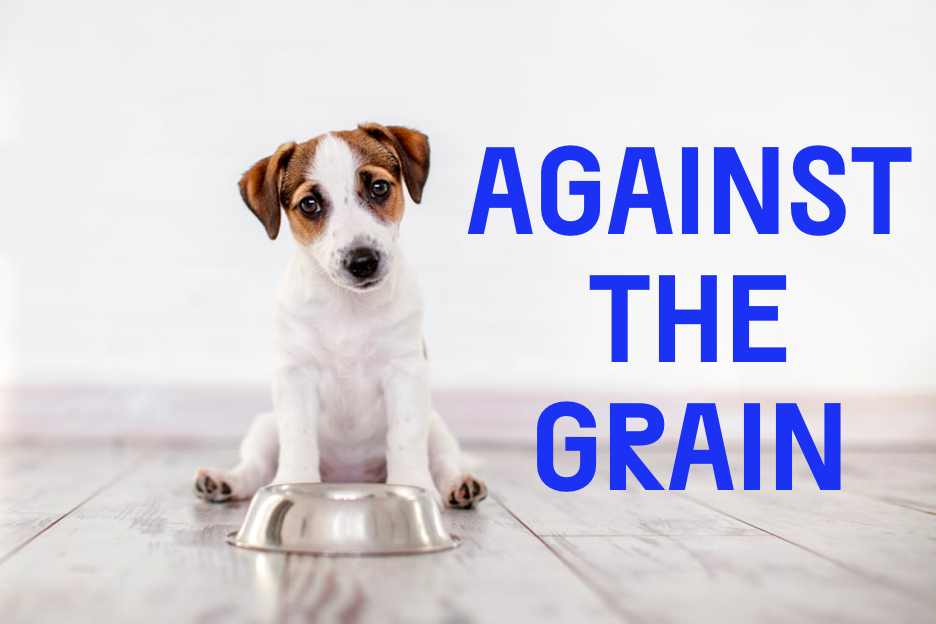
You’ve probably heard the news already: The FDA has begun investigating a number of grain-free dog foods to help figure out why some appear to be associated with dilated cardiomyopathy (DCM) – a serious disease that affects the hearts of dogs. You can bark easy, our food has not been tied in any way to DCM, nor do we expect it to be. In fact, fresh-cooked dog food has not been implicated in the possible correlation whatsoever.
This understandably has some pet parents on edge, but we’ve put together an article that will help you navigate this confusing terrain and understand the issue better. It’s a complicated subject, but for your pup’s sake, you’ll want to learn all that you can about it.
WHAT IS DCM?
Canine dilated cardiomyopathy is a severe heart condition in dogs that used to be thought of primarily as genetically predisposed in certain breeds. It happens when the muscles of the heart walls become weakened and have to work harder to compensate and pump blood properly. The heart begins to enlarge, loses the ability to pump blood efficiently, fills with fluid, and ultimately can result in congestive heart failure. Dogs may show no signs, nonspecific signs (poor appetite or energy level), or in advanced stages, they may experience coughing due to fluid in the lungs or enlargement of the heart, or severe fatigue or collapse.
DCM has been around for a long time – it’s not a new disease. It appears to be an inherited condition in some cases, and some breeds seem predisposed to it. DCM is most commonly seen in the following breeds:
- Great Dane
- Doberman Pinscher
- Boxer
- Cocker spaniel
But in recent years, there appears to have been an uptick in the prevalence of DCM – including in breeds that aren’t typically thought to be at high risk for the disease. And in some (but not all) of these cases, it has been associated with low taurine levels. It is thought that foods with high levels of peas, potatoes, and lentils may cause low taurine levels in dogs and contribute to heart disease.
WHAT IS TAURINE?
Taurine is classified as a non-essential amino acid. This means that, in contrast to essential amino acids, dogs normally make taurine internally – they do not typically need to obtain it from their diet. Taurine deficiency, in theory, should not be a problem for dogs because dogs are able to synthesize taurine from the meats in their diets. The FDA’s recent study found that kibble was the most common food type associated with DCM, but again, there has been no proven association between diet and DCM. Again, it is important to note that fresh dog foods have not been implicated in the possible correlation.
WHAT CAN YOU DO TO PROTECT YOUR PUP?
- The best way to select what is really the best food for your pet is to ensure the manufacturer has excellent nutritional expertise and rigorous quality control standards. Avoid brands that use ingredient splitting to hide the fact that their recipes are dominated by non-meat items… like corn, rice or legumes.
- Don’t avoid any brand just because it contains peas, legumes or potatoes. In reasonable amounts, studies have found these ingredients to be non-toxic and safe for your pup to consume.
- Avoid grain-free products unless they are truly necessary. In such cases, it is probably wise to select a grain-free food that is fortified with additional taurine.
- Focus on the recipe, not the brand. To satisfy consumer demand, companies sometimes replace the meat in certain products with cheaper, plant protein alternatives. Yet many brands still offer other recipes with superior, meat-rich designs.
- Most dogs make taurine internally, but if you want to err on the side of caution, you can select a food that includes supplemental taurine. Unfortunately, nobody yet knows how much taurine you should provide your dog, but selecting a food with taurine-rich ingredients (or supplements) may help your dog avoid DCM.
IS PET PLATE SAFE FOR MY DOG?
As pet parents, we are always worrying if our four-legged family members are getting exactly what they need from their food. With Pet Plate, you don’t need to worry. Here’s why our fresh-cooked food is a safe and healthy choice for your pet:
- Our meals are carefully formulated by Dr. Renee Streeter, our in-house board-certified veterinary nutritionist, with a healthy balance of meats, starches, and veggies for your pup
- We routinely test all meals and have added a taurine supplement to all of our recipes to ensure your pooch is as safe as possible
- Our ingredients are highly digestible as we use human-grade meats as the main source of protein in all of our meals
- Peas and potatoes are never used as a primary source of protein but rather as whole food complements in our balanced diets and provide energy along with many phytonutrients and benefits
- We are monitoring this issue closely and staying up to date with all research on DCM to make sure our meals remain the healthiest option for your four-legged family member(s)